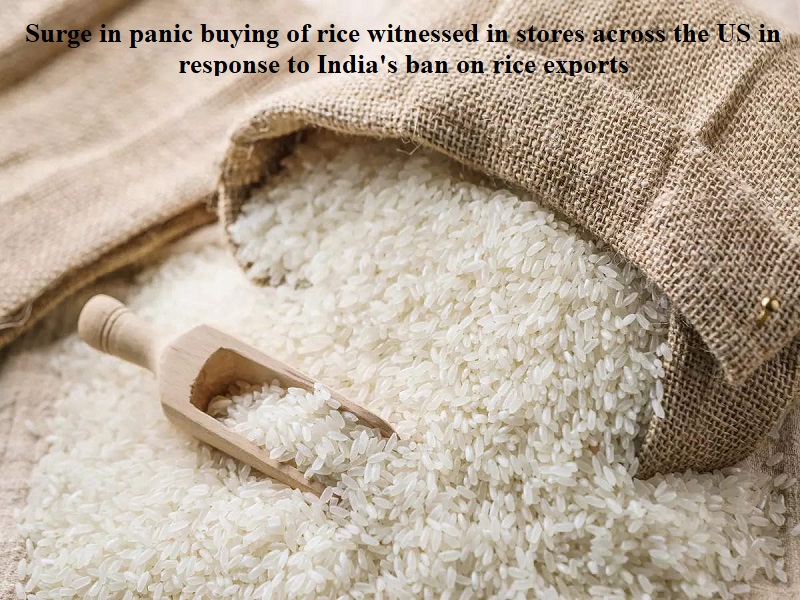
Following India’s announcement of a ban on the export of non-basmati rice, there has been a surge in panic buying of rice in departmental stores across the United States. The increased demand has led to stores implementing restrictions on the number of rice bags customers can purchase, resulting in empty shelves being reported.
To manage the situation and ensure fair distribution, many stores have put up notices limiting customers to buying only one rice bag per family. However, concerns have arisen about hoarding, with fears that some individuals may stockpile rice and attempt to sell it at significantly higher prices through online platforms.
The impact of India’s export ban on non-basmati rice has been felt globally, particularly among the Indian diaspora. Non-resident Indians (NRIs) have reportedly bought 10-15 bags of Sona Masoori rice in response to the ban.
Despite the concerns, Kiran Kumar Pola, the director of leading rice exporter Deccan Grains India, has reassured NRIs in the USA that there are sufficient rice stocks in the country, expected to last for six months. A group of rice exporters from Telangana also reached out to The Agricultural and Processed Food Products Export Development Authority (APEDA), requesting the reclassification and lifting of the prohibition on non-basmati rice exports. They have assured that there are ample stocks of non-basmati rice in the US market after India’s export ban.
However, despite these assurances, many NRIs on social media platforms have complained about the skyrocketing prices in US grocery stores, which are driven by short supply and high demand.
The export ban implemented by India only applies to non-basmati rice, with Basmati rice still allowed for trading outside the country. A majority of South Indians have a preference for Sona Masoori rice, which falls under the non-basmati category.
The Indian Food Ministry has justified the export ban, stating that it is necessary to ensure sufficient availability and stabilize prices in the domestic market. They cited a significant increase in retail rice prices over the past 12 months and a surge in Indian exports of non-basmati white rice during the second quarter, driven by global demand.
As a result of the ban, the price of a 9.07 kg rice bag, previously quoted at $16-18, has now doubled, with some places experiencing prices as high as $50. On average, India exports around 6,000 tonnes of non-basmati rice to the USA every month, with Telangana and Andhra Pradesh contributing 4,000 tonnes to this volume.

Post Your Comments